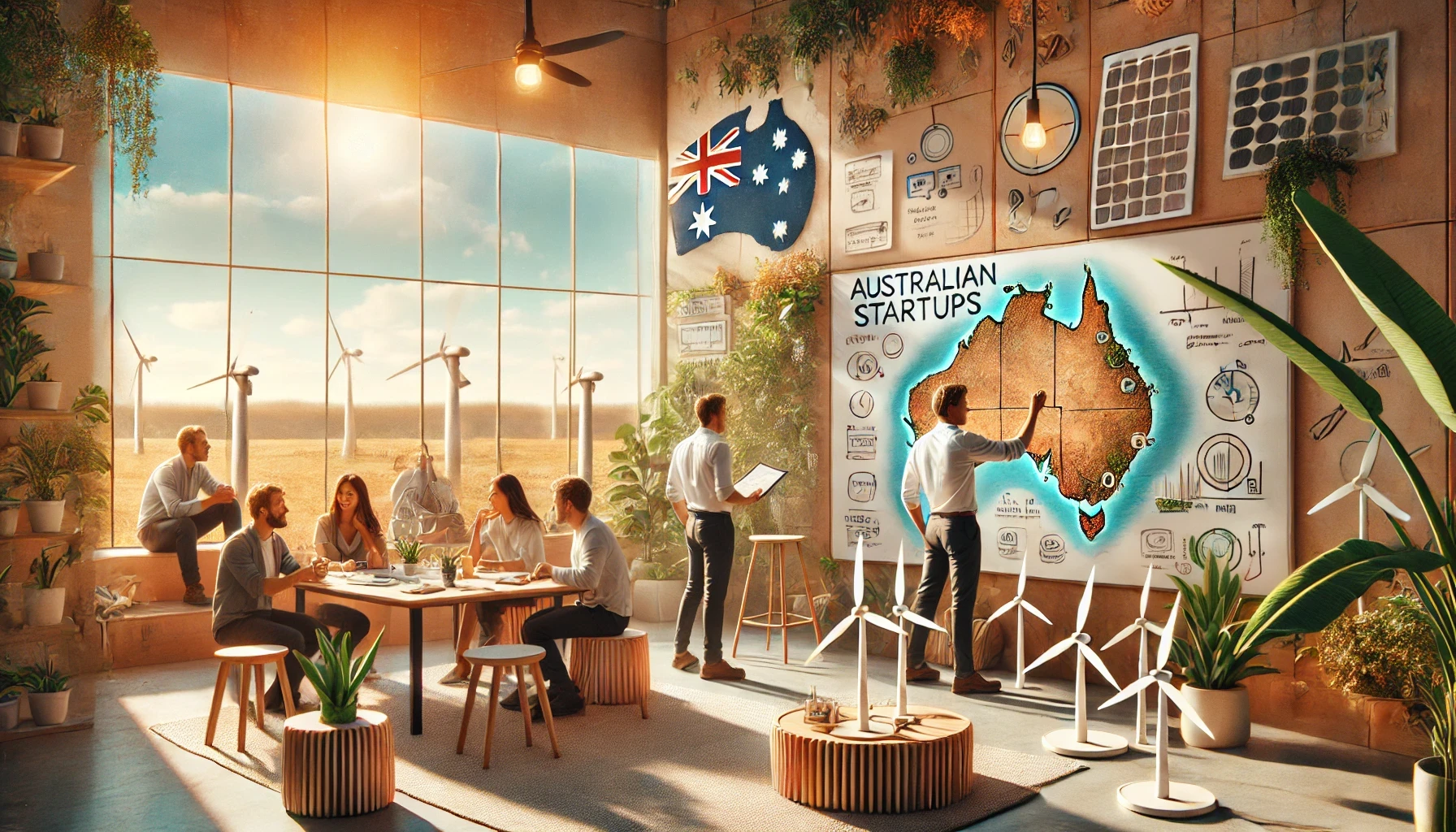For many Australians, the question isn’t just about recognising the problem; it’s about finding actionable solutions. How do we, as individuals and a nation, combat the environmental devastation while maintaining a thriving economy? Well, the solution is- innovative minds behind Australian startups. These trailblazers are proving that tackling climate change can go hand in hand with fostering economic growth, leveraging environmental innovation and green technology in Australia to pave the way forward.
In this blog post, we’ll dive deep into how startups tackling climate change are leading the charge, transforming challenges into opportunities, and making Australia a hub for sustainable progress. From renewable energy to waste management and agriculture, we’ll explore their groundbreaking solutions and inspire you to see how these efforts can make a tangible difference.
Why Australian Startups Are Leading Climate Change Innovation
Australia’s diverse environmental challenges have spurred a wave of innovation. From devastating bushfires to prolonged droughts, the need for sustainable solutions has never been greater. This urgency, combined with a robust startup ecosystem and government support, makes Australia a breeding ground for environmental innovation.
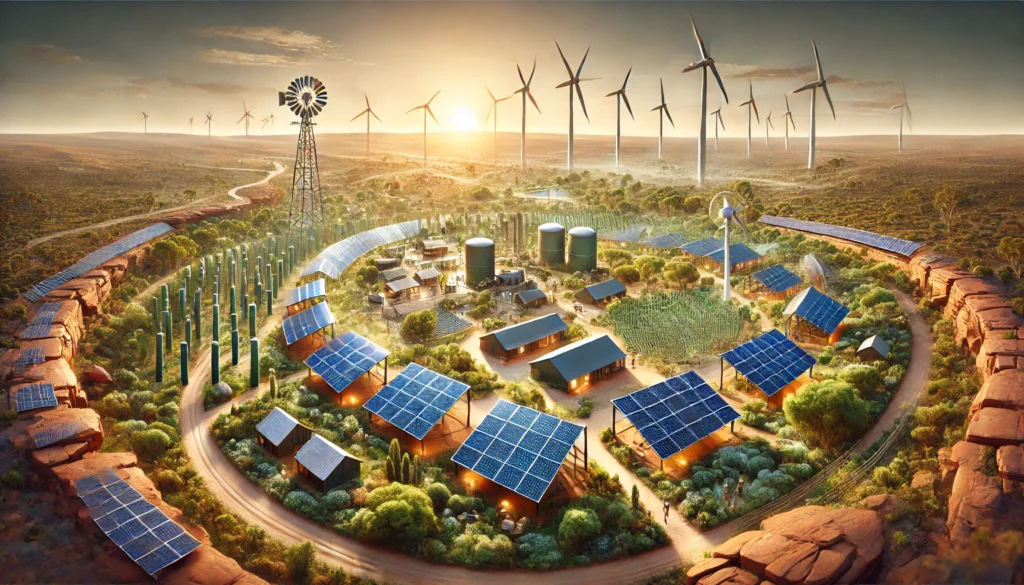
Government Initiatives: The government’s initiatives, such as the Clean Energy Finance Corporation and ARENA, have played a crucial role in funding and nurturing green technology.
Unique Opportunities: Australia’s challenges, like its vast landscapes and renewable energy potential, drive local solutions that can scale globally.
Renewable Energy Startups Tackling Climate Change
Australia’s renewable energy sector is thriving, thanks to startups like 5B and Redback Technologies.
- 5B: Revolutionised solar energy with its rapid-deployment technology, making it faster and cheaper to install large-scale solar farms.
- Redback Technologies: Enabling households to harness and store solar energy efficiently, contributing to the decarbonisation of Australia’s energy grid.
Agricultural and Land Use Innovations
Sustainable agriculture is critical in the fight against climate change, and Australian startups are stepping up to the plate.
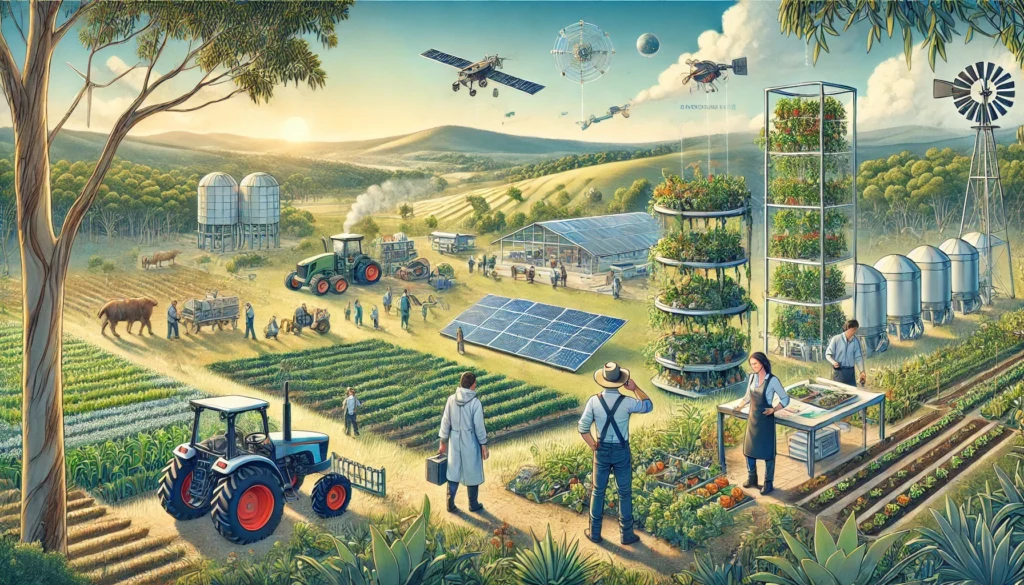
- Loam Bio: Pioneering carbon sequestration in soils, helping farmers improve soil health while reducing carbon emissions.
- Number 8 Bio: Tackling methane emissions by creating feed additives that reduce livestock’s environmental impact.
Circular Economy and Waste Reduction
The circular economy movement is gaining momentum, with startups like Samsara Eco and RecycleSmart leading the way.
- Samsara Eco: Developed an advanced plastic recycling process that breaks down plastic into its original building blocks, allowing for infinite recycling.
- RecycleSmart: Offers a user-friendly app to make recycling easier and more effective for households.
The Role of Technology in Climate Solutions
Technology is at the heart of many successful climate solutions, offering tools to tackle complex challenges and accelerate impact.
AI and Data-Driven Environmental Innovation
- Artificial intelligence (AI) enables startups to optimise resources, predict environmental trends, and enhance efficiency.
- Example: EnergyLab-supported startups use data analytics to optimise energy grids and predict weather patterns for renewable energy output.
IoT and Smart Devices
- The Internet of Things (IoT) connects devices to optimise energy and reduce emissions.
- Example: Allume Energy has developed a shared solar power solution for multi-tenant buildings, ensuring renewable power access.
Actionable Insights
Startups are integrating AI, IoT, and data systems to create scalable, impactful climate solutions. Supporting these startups empowers individuals and businesses to contribute actively to climate change mitigation.
Challenges Faced by Climate-Focused Startups
Startups tackling climate change face significant hurdles:
- Regulatory and Policy Barriers: Inconsistent policies create uncertainty, making it difficult for startups to plan long-term.
- Funding Gaps: Securing sustained investment for green innovations remains a challenge.
- Scalability Issues: Expanding solutions to global markets requires significant resources and infrastructure.
Resolving these challenges requires focused policy support, increased investment, and collaboration among stakeholders to empower long-term innovation.
How Collaboration Drives Environmental Innovation
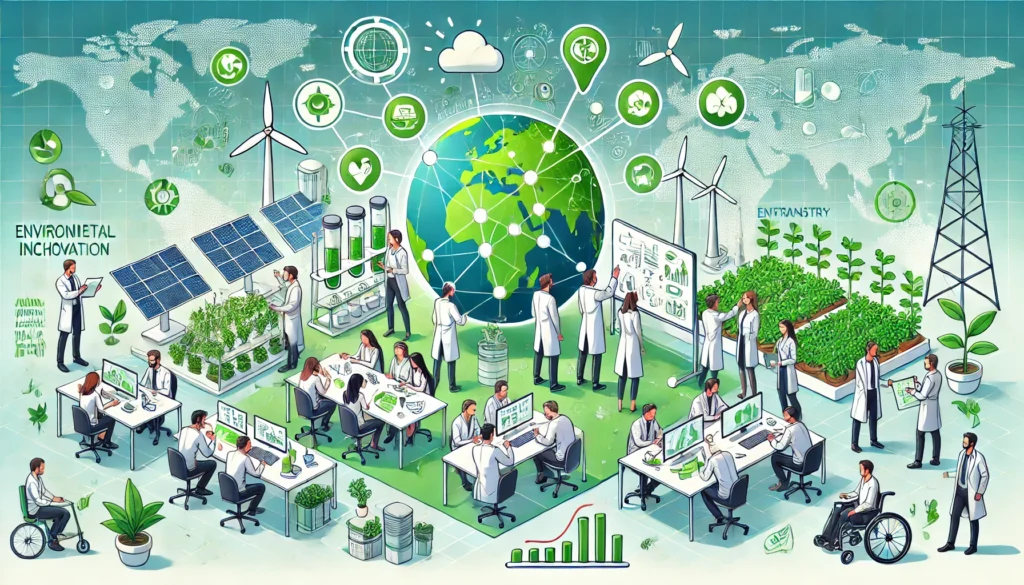
University Partnerships
- Collaboration with academic institutions is a cornerstone of many startups’ success.
- Example: The University of Queensland has partnered with cleantech startups to refine new technologies and accelerate their journey to market.
Industry Collaborations
Startups team up with corporations to amplify their impact through access to resources, networks, and expertise.
International Collaboration
By collaborating with international organisations and entering overseas markets, Australian startups are scaling their impact globally.
The Future of Green Technology in Australia
Emerging Trends
The future of green technology in Australia is bright, with innovations like hydrogen energy and carbon capture gaining traction. These technologies have the potential to transform industries and reduce emissions on a massive scale.
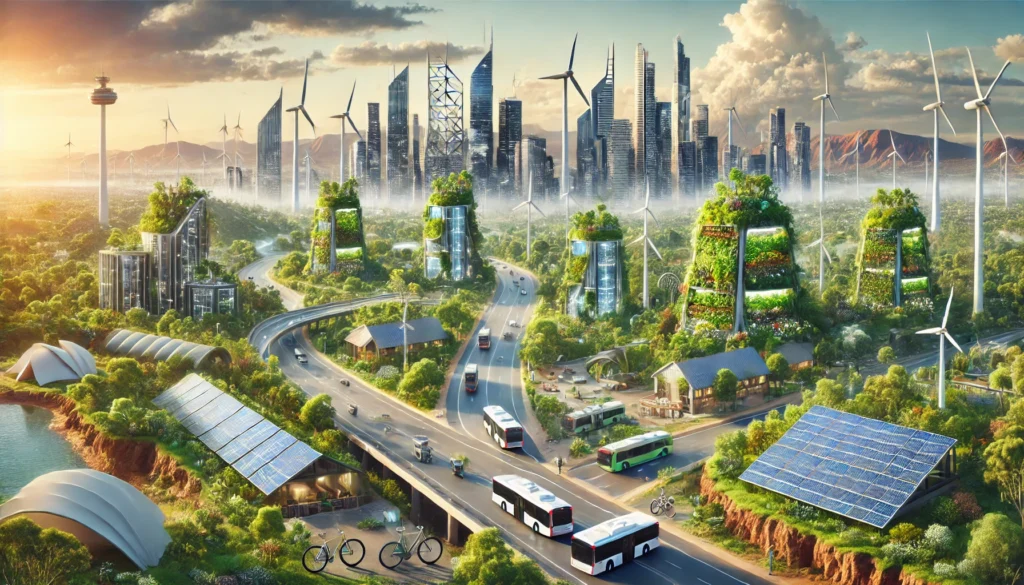
Policy Recommendations
To support advancements, cohesive policies and long-term investment strategies are needed. Governments can enable growth by reducing regulatory barriers and providing tax incentives for green innovation.
Vision for 2030
By 2030, Australia could become a global leader in climate solutions, setting an example for the world. If startups continue to innovate and receive support, a sustainable future is within reach.
Moving Forward: Empowering Climate Innovation
Australian startups tackling climate change are at the forefront of environmental innovation, proving that sustainability and economic growth can coexist. These efforts are transforming industries and fostering a future rooted in resilience and sustainability.
By supporting these startups through investment, advocacy, or adopting their solutions, individuals and businesses can actively drive meaningful change. Together, we can turn Australia into a global hub for green technology, inspiring the world to follow suit.
